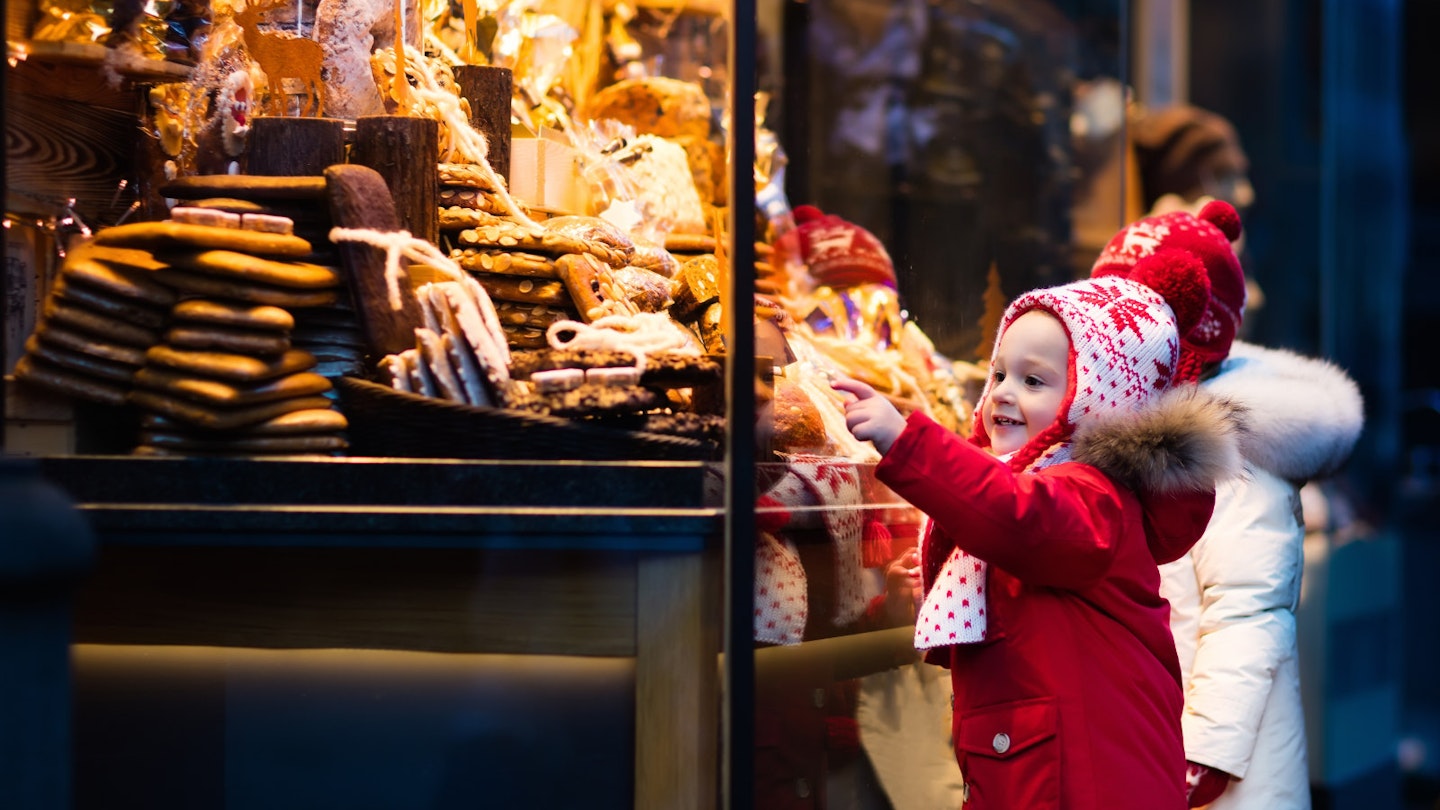Experience Christmas Traditions and Markets in Germany
December in Germany has always been an important time, making it the perfect month for visitors to experience centuries-old Christmas traditions that are still alive today.
Historically, Advent is meant to be a period of preparation for the Christmas religious holiday, running from the start of December until Christmas Eve. Nowadays, it’s a time for gatherings with friends and family—known as Deutsche Gemütlichkeit (German coziness or hygge). Candles are lit, Christmas decorations are set up, and homes fill with the smell of cinnamon and freshly baked cookies.

You can start feeling the Advent atmosphere in mid-November as people begin spending more time indoors, gradually enveloping themselves and their homes in winter magic. Families and friends gather to sing Christmas songs, bake treats, enjoy dinners, or simply spend quality time together—activities that often take a backseat during the busy year.
As life slows down, the entire country dives into a festive mood. Traveling to Germany in December is a fantastic opportunity to witness this celebratory spirit and experience a fairytale-like atmosphere. Due to the popularity of this season, planning all activities in advance is advisable.
German Christmas Traditions
As November draws to a close, farmers’ markets begin selling the traditional Adventskranz—a wreath made of evergreens adorned with four candles. An additional candle is lit each Sunday leading up to Christmas Eve. While many families create their wreaths at home, you can also find them at weekly farmers’ markets in most German cities. More modern, durable wreaths are available at department stores or boutique shops.

During this time, Christmas markets spring up throughout cities and villages, with larger destinations featuring markets in every district. Among the delightful stalls, you will find Glühwein (mulled wine), roasted caramelized almonds, and Reibekuchen (potato fritters) served with applesauce—some of the most popular treats. Crafts such as beeswax candles, wooden figurines, and paper or glass decorations abound; making for beautiful souvenirs.
Among the most renowned Christmas markets are Nuremberg, Dresden, and Aachen. For a truly enchanting experience, consider visiting smaller markets in places like Rothenburg ob der Tauber or in the picturesque villages of the Black Forest. The mountainous regions in southern Germany often have a higher chance of snow in December, enhancing the holiday ambiance.
Every bakery adorns itself with festive treats, including Gingerbread, Lebkuchen, and Weihnachstgebäck, making these a perfect gift to bring home. Another delightful sweet is Weihnachtsstollen—a cake-like bread filled with raisins, dried apricots, marzipan, and nuts, dusted with powdered sugar.
On December 6, the celebration of Saint Nikolaus takes place—not to be confused with Santa Claus. The evening before, children polish their boots and set them outside their doors, anticipating Nikolaus’s arrival. Overnight, well-behaved children’s shoes will be filled with nuts, oranges, and chocolates, while those who misbehave will find only a “Rute” (twig) awaiting them.
If you travel with kids, share this tradition with them and encourage them to place their shoes outside. Some hotels and B&Bs enjoy participating, offering little surprises for young guests. If not, you can always take on the role of Nikolaus yourself.

Advent culminates with the commencement of Christmas holidays. Christmas Eve is a special time when many families gather for dinner and attend church services together. Afterwards, presents are discovered under the beautifully decorated Christmas tree. The 25th and 26th of December are national holidays, when daily life comes to a standstill, reserved for family gatherings and reconnecting with friends.
Top Christmas Markets in Germany
Munich
With Christmas markets scattered throughout the city and stunning decorations, you can spend an entire weekend exploring Munich, combining first-class shopping, traditional Bavarian cuisine, and stopping for a cup of mulled wine and sweet treats. Munich enjoys a high chance of snow in December, ensuring that the brisk evening air enhances your stroll through the city.

Aachen
A student city with a rich history dating back to Charlemagne, Aachen’s charming old town is worth visiting year-round, but it radiantly shines during Christmas. The narrow streets are infused with the aroma of freshly baked Aachener Printen (a variant of gingerbread), while the Katschhof and Market Square are bustling with Christmas huts. This makes Aachen an ideal day trip from Cologne or Düsseldorf.
Bremen
Bremen’s old city and Schnoorviertel are beautifully illuminated and decorated, with the statue of the famous Bremen Town Musicians from the Brothers Grimm making your photos memorable. These Christmas markets offer a variety of fish dishes, providing insight into how Advent is celebrated in northern Germany. Although Bremen is not as bustling as neighboring Hamburg, it has enough activities to keep you entertained during a weekend.
Monschau
For delightful Christmas vibes in a quaint village set against the backdrop of the scenic Eifel mountains and likely snowy surroundings, Monschau is an excellent choice. Despite its touristy nature, the village’s charm should not deter you from visiting.

Cologne
With Kölner Dom towering over the city and a lively Christmas market at its base, the view alone will undoubtedly impress any visitor. However, Cologne boasts multiple Christmas markets throughout the city. December becomes bustling with activity, making it possible to spend an entire weekend shopping for unique gifts or enjoying coffee paired with Christmas pastries in trendy coffee shops within the Belgian Quarter and Köln Ehrenfeld. Don’t forget to visit the market located by the Rhine River, next to the Schokoladenmuseum.




